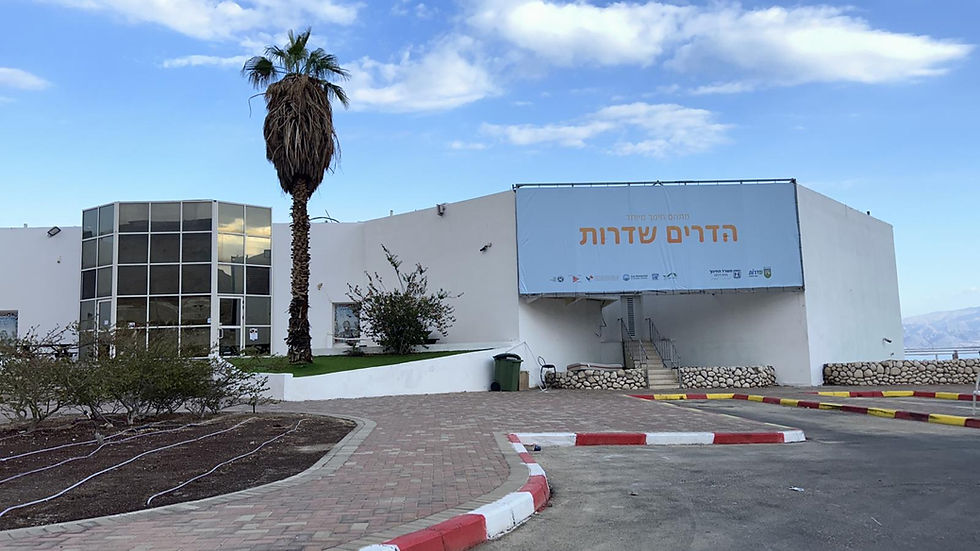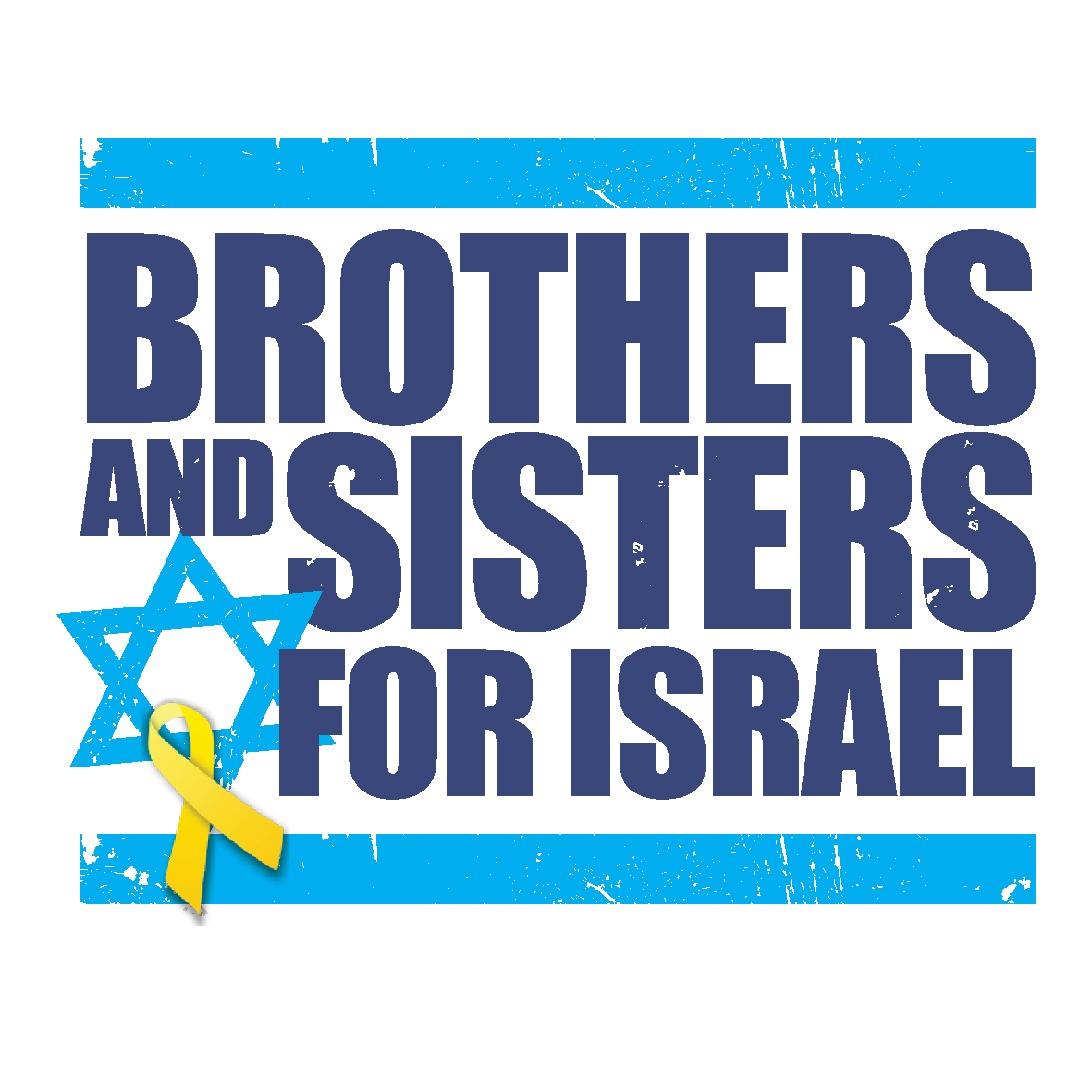
Past Projects
Brothers and Sisters for Israel – Hamal Ezrachi has been working since October 7, leading initiatives to support victims, their families, and communities affected by the attacks and the war.
Scroll down to explore the emergency projects that made a difference in those first few months.


Rescue and Evacuation
At the outbreak of the war, BSI, in collaboration with "Brothers in Arms" volunteers, established a forward command center in Kibbutz Beit Kama. This center operated 20 rescue teams that evacuated hundreds of civilians and soldiers under fire. More than 3,000 civilians were evacuated to the Beit Kama area, where they were provided with temporary housing and personal assistance. Additionally, foreign workers were rescued and integrated into alternative workplaces. The teams also provided essential equipment to the wounded and evacuees.


Brothers and Sisters for Agriculture
BSI supported agricultural farms in all combat zones, addressing labor shortages caused by the evacuation of workers and the departure of foreign laborers. Volunteers engaged in harvesting ripe fruits and vegetables, as well as planting and sowing. Hundreds of volunteers, including pre-military academy students, contributed approximately 63,000 volunteer days. Activities took place in dozens of communities across the country, particularly in the south and north.


Brothers for Employment
This initiative provided comprehensive employment solutions for evacuees, organizing over 40 job fairs in major cities, establishing a broad job database, and offering dozens of professional training courses. Project volunteers helped hundreds of evacuees reintegrate into the workforce and rebuild their economic stability by matching employment opportunities to their immediate needs.


Food Security
הDuring the first three months of the war, BSI, in collaboration with World Central Kitchen and the Jewish Federations of North America, provided over 500,000 hot meals to children, the elderly, and displaced families. Meals were distributed in coordination with local authorities and additional partners, ensuring food security for those facing the hardships of displacement.


Emergency Response Teams
As part of this project, protective equipment was distributed to 150 emergency response teams in rural communities (kibbutzim and moshavim) through close cooperation with local authorities and security officers. Volunteers, including former security personnel, developed tailored action and training plans for each community based on lessons learned from October 7.


Educational Support Centers (Michamim)
The Michamim serve as safe spaces providing educational, emotional, and social support for children and youth from frontline communities and evacuation hotels. These centers offer a stable framework for formal studies, informal enrichment activities, and emotional support to help children cope with their complex reality. Over 80 Michamim were established in partnership with organizations specializing in education and enrichment.


Resilience Expeditions for Evacuated Children
A unique desert expedition combining nature, engaging activities, and therapeutic processes led by experienced professionals. These expeditions provided children from the Gaza border region with an opportunity to process their experiences through group and individual activities in a safe and supportive environment. Each expedition concluded with a reflective session designed to help children find meaning and grow from their experiences. Thirteen expeditions were conducted in partnership with Seminar HaKibbutzim.


Evacuee Management Unit
The October 7 attack and the ensuing war left hundreds of thousands of civilians homeless. The Evacuee Management Unit was established by BSI to provide immediate and comprehensive support to those affected. The unit assisted hundreds of thousands of evacuees at over 350 sites nationwide, with volunteers providing essential needs, setting up kindergartens, operating supplemental education centers, and organizing job fairs, recreational activities, and relief programs. Command and logistics centers were set up in Eilat, the Dead Sea, Mitzpe Ramon, Jerusalem, Tel Aviv, Herzliya, Netanya, Haifa, Tiberias, and regional councils across the country.


Logistics Centers
In response to the massive displacement, logistics centers were established to coordinate the distribution of essential supplies. Hundreds of volunteers worked to ensure the smooth delivery of food, hygiene products, and other necessities to affected communities.


Missing Persons Command Center
At the outbreak of the war, the command center took on the urgent mission of locating missing persons amid chaos and uncertainty. Within days, hundreds of volunteers from the tech, intelligence, and social media sectors were recruited to analyze data using advanced methodologies. Over an intensive month, the command center gathered information from various sources, analysed thousands of videos using AI technology, and created detailed profiles of missing and abducted individuals. Led by Ari Harel and Professor Karine Nahon, this initiative produced high-quality intelligence that was shared with security agencies and contributed to life-saving efforts.


Support for Elderly Evacuees
This project provided tailored support to elderly evacuees, addressing their unique physical and emotional needs. Volunteers assisted in ensuring their well-being and access to essential services.


Brothers and Sisters in the Kitchen
This initiative aimed to boost the morale of soldiers and their families. About 150 volunteers prepared high-quality meals, served at uplifting events that included performances. Dozens of events were held, providing meals to thousands of soldiers, creating moments of unity and joy.


Medical Equipment Distribution
BSI, in collaboration with the Ministry of Health, Home Front Command, and Magen David Adom, worked to equip local emergency response teams with advanced medical supplies. So far, approximately 16,000 personal kits containing individual bandages and tourniquets (CATs), 1,000 advanced medical bags, and 300 paramedic emergency kits have been distributed, enhancing medical preparedness in frontline communities.


Animal Rescue and Welfare
BSI, along with "Brothers in Arms" volunteers, rescued more than 1,000 pets left behind due to the fighting in the south and the evacuation of communities. Efforts included capturing, feeding, and caring for animals in besieged areas and evacuation centers. Additionally, donations worth approximately 1.5 million NIS were collected for purchasing supplies and medical care for affected animals. The initiative was carried out in cooperation with private rescuers, the Ministry of Environmental Protection, and various animal welfare organizations.


Support for Bereaved Families
Following the events of October 7, BSI provided logistical and emotional support to bereaved families during the shiva period and beyond. The initiative included personal outreach to families, preparation of hundreds of mourning kits to assist with shiva arrangements, and home visits by trained teams. The goal was to alleviate the burden on families during their most difficult time and provide them with essential support.


Brothers and Sisters for Industry
Factory Assistance - BSI supported approximately 30 factories along the northern and southern borders that faced challenges due to labor shortages caused by evacuations, reserve duty, or injuries. In collaboration with regional councils, factories in need of assistance were identified, and hundreds of volunteers provided over 4,000 workdays. Additionally, guidance was given on securing grants and benefits from public and private sources. This support helped ensure economic continuity in these regions.


Hadarim Special Education School
A unique school for children with special needs was established within days at the request of the Sderot Municipality and the Ministry of Education, in partnership with Bezalel Academy. The school provided a tailored learning environment for approximately 60 children, including eight specialized classrooms, personal therapy stations, and relaxation areas. The project aimed to offer children a supportive educational framework and assist parents in coping with evacuation challenges and security concerns.


Support for the Bedouin Community
During the war, BSI provided comprehensive assistance to the Bedouin community, including the establishment of protected spaces, distribution of food and medical supplies, support for affected families, and assistance with temporary employment solutions in southern factories and the agriculture sector. As part of the activities, thousands of daily food portions and first aid kits were distributed, containers were converted into bomb shelters, and emergency team trainings were conducted. Currently, the Civilian Operations Room is working with the Bedouin community on projects aimed at nurturing young leadership within the Bedouin community and strengthening the sense of belonging.













